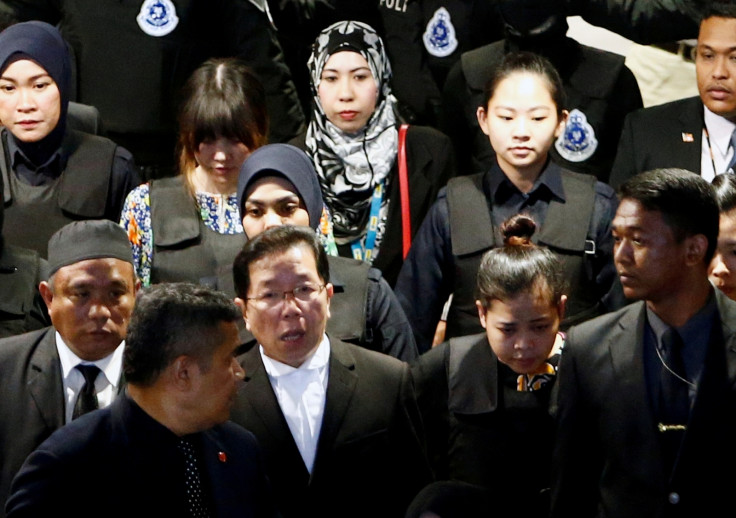Kim Jong-nam's alleged assassins revisit the murder scene at Kuala Lumpur airport in Malaysia
Jong-nam's face was allegedly smeared with the deadly VX nerve agent as he walked through the terminal.
The two women accused of killing North Korean dictator Kim Jong-un's estranged half-brother revisited the crime scene in Malaysia during their trial.
Indonesian Siti Aisyah and Doan Thi Huong of Vietnam had allegedly killed Kim Jong-nam at the Kuala Lumpur International Airport on 13 February. The pair toured the airport on Tuesday 24 October with the judge, prosecutors, defence lawyers and representatives from their home countries. They were at the airport to give the trial participants a better understanding of the case.
The two were handcuffed and seen wearing bulletproof vests. They were escorted inside the airport by heavily armed police, the BBC reported.
The women along with High court judge Azmi Ariffin first visited the check-in kiosk in the budget terminal where Jong-nam's face was allegedly smeared with a deadly VX nerve agent by the accused as he waited to board a flight to Macau. They also visited the airport clinic where Jong-nam was taken after the attack and then to a taxi stand where the women went after the alleged murder.
The development came days after Aisyah and Huong pleaded not guilty to the crime. They claimed they were duped into believing that it was a harmless prank for a TV show, and that they became unwitting pawns in the assassination plot. The duo had also accused North Korean agents of the killing, but Pyongyang has denied any involvement.
If found guilty, the women could face death sentences. Their defence lawyers are likely to argue that the real offenders are the four North Koreans who fled Malaysia on the day of murder. They are also believed to be charged in the case.
Jong-nam, who was in his mid-40s, had been living abroad, and at the time of his murder he was travelling on a North Korean diplomatic passport under the name Kim Chol. The widely-publicised case has pointed fingers at the Kim regime in North Korea as the country has a long history of ordering killings of people it views as threats.






















